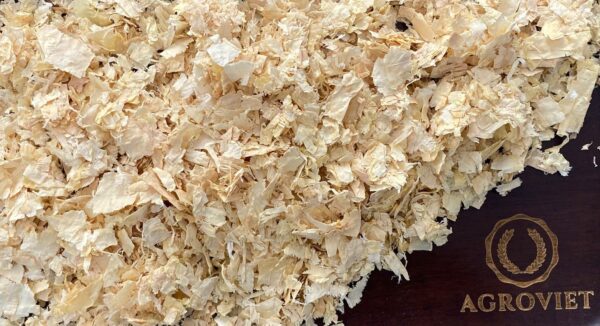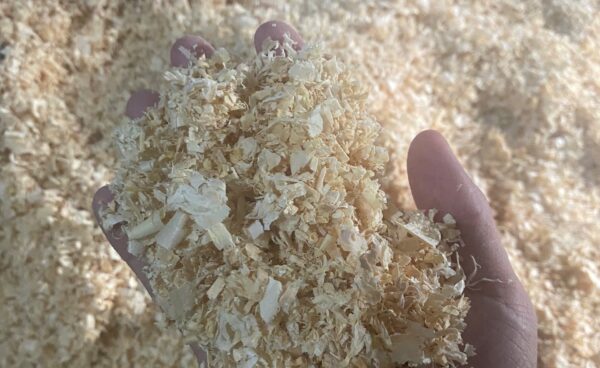PINE WOOD SHAVINGS FOR COMPOSTING: A SUSTAINABLE WAY TO REUSE BEDDING
Pine wood shavings are widely used as bedding for animals due to their comfort, absorbency, and natural odor control properties. However, once the bedding becomes soiled, disposing of it can present a challenge. A sustainable solution to this problem is composting. By using pine wood shavings for composting, you can transform soiled bedding into rich, nutrient-dense compost for gardens and farms. This not only reduces waste but also promotes eco-friendly practices in animal care. In this article, we will explore how pine wood shavings can be composted, their benefits in composting, and how they contribute to a sustainable cycle of reuse.
Benefits of Composting Pine Wood Shavings

1. Eco-Friendly Disposal
Composting pine wood shavings provides an environmentally friendly method for disposing of soiled bedding. Instead of sending used shavings to the landfill, where they contribute to waste and greenhouse gas emissions, composting allows them to be broken down naturally and returned to the earth. This helps minimize environmental impact and supports a circular, sustainable system.
2. Nutrient-Rich Compost
When composted properly, pine wood shavings combined with animal waste can create nutrient-rich compost that is ideal for enriching soil. Pine wood shavings provide carbon while animal manure provides nitrogen, creating a balanced compost that can improve soil structure, enhance moisture retention, and promote healthy plant growth. The compost can be used in gardens, landscaping, and farming to boost crop yields and improve soil health.
3. Cost-Effective Solution
Reusing pine wood shavings as compost offers a cost-effective alternative to purchasing commercial fertilizers. The compost produced from the soiled bedding can replace synthetic fertilizers, reducing costs for those managing farms or gardens. Furthermore, by composting the bedding material, you save money on waste disposal fees while also benefiting from free organic matter for your soil.
How to Compost Pine Wood Shavings
1. Preparing the Compost Pile
To begin composting pine wood shavings, create a compost pile or bin in a well-ventilated area. The key to successful composting is maintaining the right balance of carbon (brown materials like pine shavings) and nitrogen (green materials like animal manure). Aim for a ratio of approximately 30:1 of carbon to nitrogen. If you have an excess of shavings, you can supplement with additional nitrogen-rich materials like grass clippings or kitchen scraps.
2. Layering the Materials
When building your compost pile, alternate layers of pine wood shavings and animal manure. Start with a layer of shavings as the base, followed by a layer of manure. Repeat the layers, ensuring each one is evenly distributed. It’s important to avoid clumping the shavings together, as this can impede airflow and slow down the composting process.
3. Turning the Compost
Aeration is essential for composting. Turn the compost pile every 1-2 weeks to introduce oxygen and promote decomposition. This helps accelerate the breakdown of materials and prevents the pile from becoming compacted. If the pile feels dry, add water to maintain moisture, but avoid overwatering as excess moisture can slow decomposition.
4. Compost Maturation
Composting pine wood shavings can take anywhere from 3 to 12 months, depending on the size of the pile, the materials used, and the frequency of turning. Once the compost is dark, crumbly, and earthy-smelling, it’s ready to use. Sift out any large, undecomposed pieces and add them back to a new compost pile for further breakdown.
Best Practices for Composting Pine Wood Shavings
1. Monitor the Carbon-Nitrogen Ratio
The success of composting depends on maintaining the right balance of carbon (from the shavings) and nitrogen (from the manure). If the compost is breaking down too slowly, try adding more nitrogen-rich materials like green plant matter. Conversely, if the compost smells like ammonia or feels too wet, add more pine wood shavings or other carbon-rich materials to restore balance.
2. Use Proper Bedding

When composting animal bedding, it’s important to ensure that the shavings are free from chemicals or synthetic additives. Always opt for untreated, natural pine wood shavings to ensure the compost remains organic and safe for gardens or farms. Avoid shavings treated with preservatives or insecticides as these can inhibit microbial activity in the compost and introduce harmful substances to the soil.
3. Avoid Overloading with Manure
Although manure is a valuable source of nitrogen, too much can overwhelm the compost pile and lead to strong odors or slow decomposition. Stick to recommended ratios and balance the manure with an adequate amount of pine wood shavings to ensure the compost process remains smooth and effective.
The Impact of Composting Pine Wood Shavings on Sustainability
1. Reducing Waste
Composting pine wood shavings helps divert waste from landfills and contributes to sustainable farming and gardening practices. By turning waste bedding into compost, you not only reduce your environmental footprint but also recycle valuable organic materials back into the ecosystem.
2. Enhancing Soil Health
Pine wood shaving compost can significantly improve soil health by enhancing its structure, water retention capacity, and nutrient availability. This organic matter also promotes microbial activity, which is essential for healthy, fertile soil. Using compost from pine wood shavings creates a natural, chemical-free alternative to fertilizers and helps regenerate soil, benefiting both plant life and the environment.
3. Lowering Carbon Emissions
By composting pine wood shavings instead of disposing of them through incineration or landfilling, carbon emissions are reduced. The composting process sequesters carbon into the soil, reducing the overall carbon footprint of managing animal bedding. Sustainable practices like composting contribute to climate change mitigation efforts by keeping carbon in the soil rather than releasing it into the atmosphere.
Conclusion: Pine Wood Shavings for Composting – A Sustainable and Effective Solution

Using pine wood shavings for composting is a highly effective and sustainable way to reuse animal bedding. From reducing waste to creating nutrient-rich compost, this practice supports eco-friendly agriculture, gardening, and animal care. Composting transforms soiled pine wood shavings into a valuable resource, contributing to healthy soil, reducing waste disposal costs, and promoting sustainability. If you are seeking a green solution for animal bedding, consider the benefits of composting pine wood shavings and taking part in a more sustainable way of managing your farm or garden.
Read more: https://vietnambestwood.com/general/pine-wood-shavings-manage-moisture/
